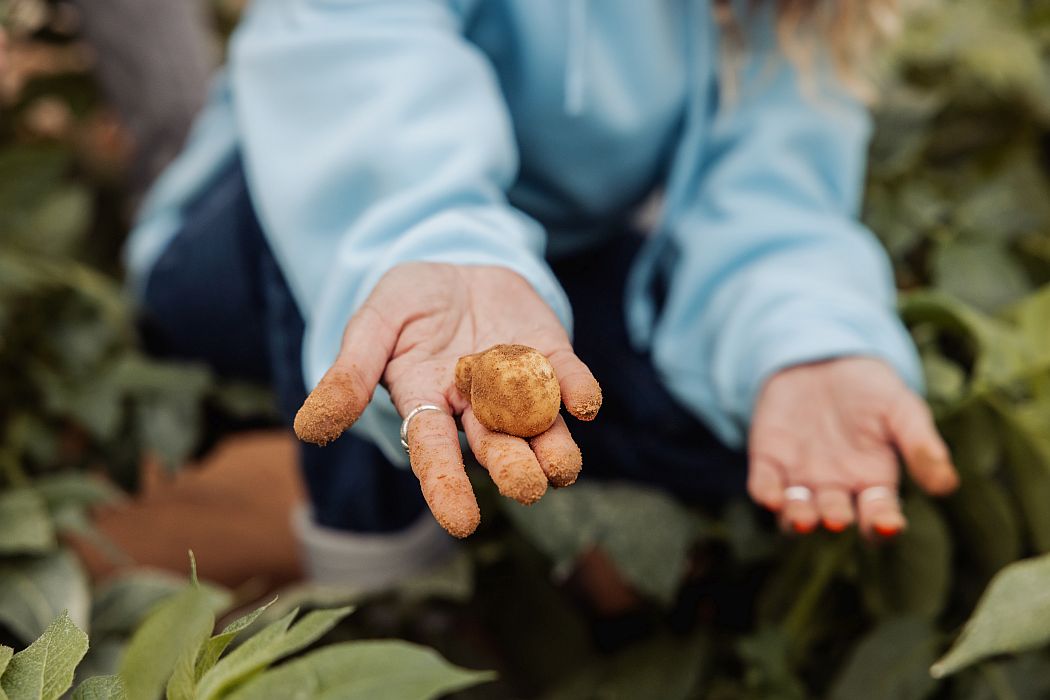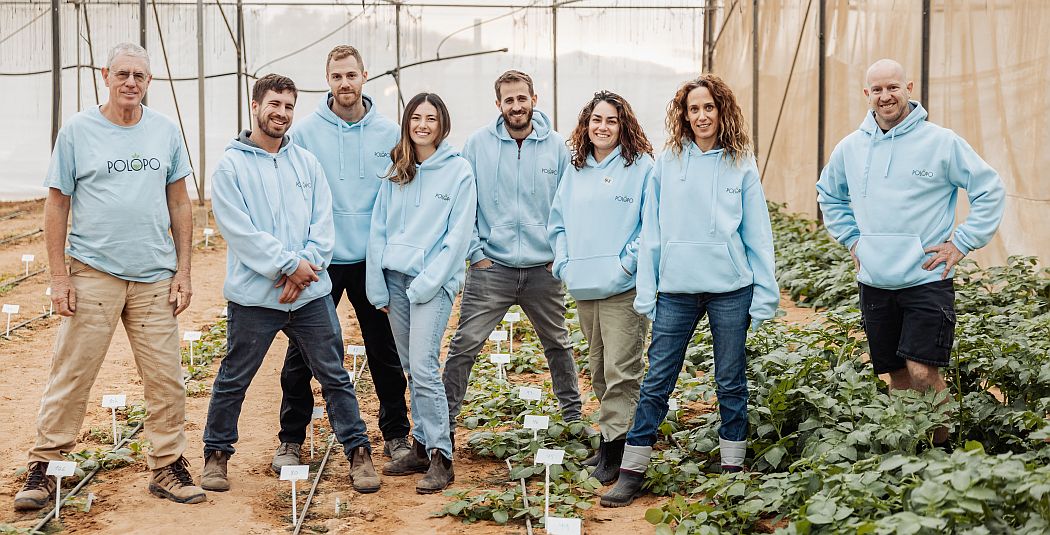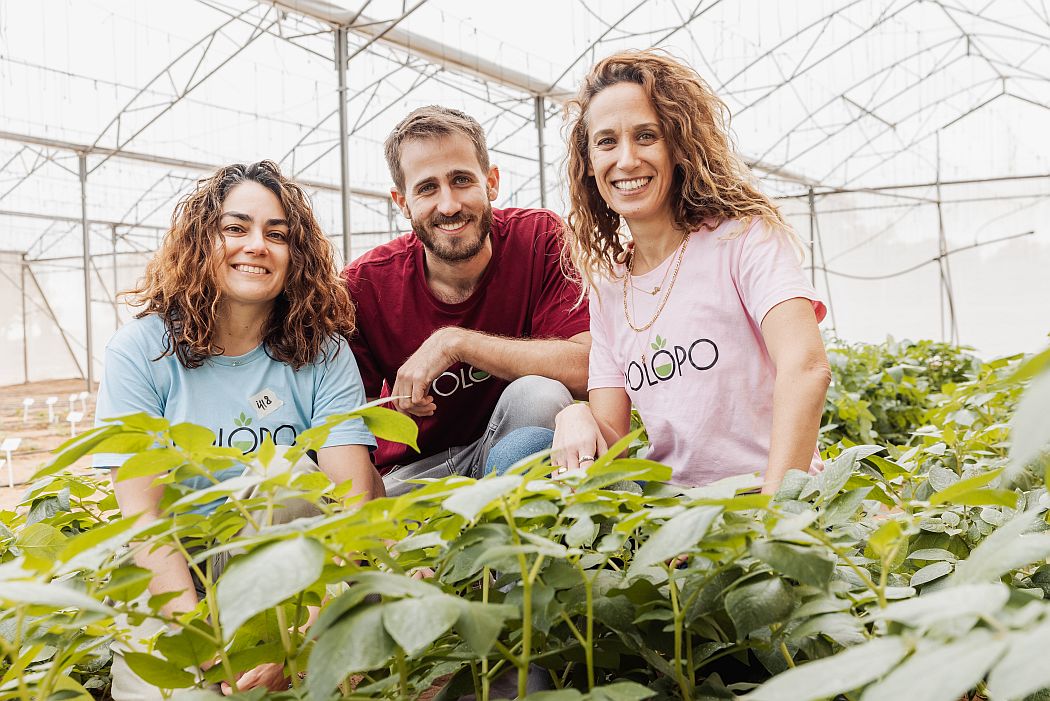Persistent volatility driven by recurrent bouts of avian flu, fluctuating feed and energy costs, regulatory changes, and a global pandemic, have wreaked havoc in the egg market, prompting a surge of interest in alternatives, from duckweed protein to bioidentical egg proteins made by microbes instead of chickens.
Israeli molecular farming startup PoLoPo, however, is taking a different approach by genetically engineering potatoes to produce ovalbumin, the most prevalent protein in egg white. It is also developing new strains of potatoes that can produce higher levels of the native potato protein patatin, which it claims has significant potential in a wide range of food applications, if the price is right.
While several companies are engineering microbes to produce animal proteins via precision fermentation, PoLoPo and others in the emerging ‘molecular farming’ space argue that the unit economics of growing some of these high-value proteins in genetically engineered plants—which require less capex and opex—are more favorable.
That said, the regulatory pathway is potentially a little more burdensome given the need to gain approvals both for planting crops and the final ingredient, while US regulators have also warned startups in the field that expressing certain animal proteins in crops will require strict allergen management.
“We have had many conversations with other molecular farming companies, the USDA and the FDA [about developing closed-loop systems for crops containing animal proteins],” PoLoPo cofounder Dr. Maya Sapir-Mir told AgFunderNews. “One thing to note is that the final proteins are not GMO and are identical to the [animal-derived ovalbumin] source.”
It also takes longer to grow potatoes than microbes, potentially lengthening the R&D cycle for molecular farming vs precision fermentation, said Sapir-Mir.
Once a new plant variety has been developed, however, scaling up is potentially cheaper and easier than it might be with precision fermentation, which presents new challenges every time you move to a larger fermenter, she noted. “Scaling up in molecular farming just means growing more potatoes.”

Downstream processing and purification
But why use potatoes, versus, say, lettuce, or soybeans, as a host?
One key advantage of potatoes as a host is that the downstream process for extracting and purifying proteins is simpler, claimed Sapir-Mir, who cofounded PoLoPo with Dr. Raya Liberman-Aloni (CTO) in 2022.
“Potatoes are cheap to grow with high yields almost anywhere and the proteins we are expressing are accumulated only in the tuber, the edible part of the plant. The downstream processing is also easier than it is for soybeans and other plants.”
Asked whether the material left following the protein extraction could be useful given that it might contain egg allergens, she said: “We are looking to commercialize the starch and fibers. There are lots of potential applications in cosmetics and other areas.”
While the ovalbumin protein stream from PoLoPo’s potatoes will contain some native potato protein (“patatin”), this will not restrict its market potential, claimed Sapir-Mir, who noted that potato proteins have many-egg protein-like functional qualities “We won’t need to isolate the ovalbumin.”
High-protein potatoes
Indeed, the first crops that PoLoPo is producing—with field trials expected to yield three tons of potatoes when they are harvested next year—are potatoes with higher levels of patatin, a highly soluble, non-allergenic, clean-tasting protein with attractive gelling, foaming, emulsification, binding, texturizing and stabilizing properties, said Sapir-Mir.
“Patatin has high functionality, similar to eggs, high nutritious value, and it’s almost tasteless.”
Right now, she explained, potato protein is a byproduct of starch production that does not yet play a meaningful role in the human food market given the small quantities available (most potatoes only contain 2% protein) and challenging economics.
Dutch firm Avebe is the best-known player in the market with a branded protein called Solanic, while UK-based potato supplier Branston is entering the market shortly.
If you can elevate the protein level, however, the economics suddenly look far more attractive, said Sapir-Mir, who submitted a regulatory status review with USDA over six months ago so that US partners and growers may begin cultivating PoLoPo’s potato plants.
“We’re now testing larger-scale cultivation of selected varieties in Israel that have demonstrated exceptional potential in greenhouse trials, so we can provide bigger samples for our partners, who want to test kilos, not grams, of product.
“Potato protein currently costs $70-100/kilo, which is mind blowing. It’s expensive because we don’t have enough of it, but the food industry is very keen to work with it if there is a lower price.”
Scaling up
Asked about scaling up at PoLoPo—which has raised $2.3 million in pre-seed funding from FoodLabs, Milk & Honey Ventures, and others—she said, “Our plan at the beginning is not to build our own big [protein extraction] facility. We saw, unfortunately, what happened to many foodtech companies that invested in huge capex [projects]. We want to start and work with a CMO as our process is relatively easy and fast.”
As for the business model, PoLoPo plans to be a b2b ingredients supplier, and has already struck a partnership with CSM Ingredients to help explore application opportunities for its proteins, said Sapir-Mir. “Our final products will be functional protein powders.”
The high-protein-content potatoes just planted in fields in Israel will be harvested next year, when PoLoPo also hopes to plant its first [field-grown] crops of ovalbumin-containing potatoes.
According to Sapir-Mir: “We only started in the lab two years ago working on the genetic manipulation, and then the downstream process, and we have amazing traction from companies interested in avoiding eggs. Now we need to supply enough samples to the industry. We will likely keep R&D and sample production here in Israel, but all the production will move soon to the US, where we are currently looking at collaborations.”

What is molecular farming?
There are varying definitions, but companies deploying plant molecular farming are typically genetically engineering plants to make them produce something they wouldn’t typically make (think vaccines made in tobacco, growth factors made in barley, dairy proteins expressed in soybeans or lettuce, chymosin made in safflower).
Rather than modifying the plant to confer a beneficial agronomic property such as disease resistance, stress tolerance, increased yields, or improved nutrition (e.g., purple tomatoes), molecular farming companies use plants like bioreactors in order to produce specific high-value ingredients.
In recent years, multiple players have emerged producing so-called ‘animal-free’ proteins through molecular farming, which they argue is more sustainable, ethical, and potentially more efficient than industrialized animal agriculture.
Players to watch in the molecular farming space include:
- Dairy proteins: Mozza, Alpine Bio (USA), Miruku (New Zealand), IngredientWerks (USA), Veloz Bio (Spain), Pigmentum, Finally Foods (Israel)
- Growth factors: Bright Biotech (UK), ORF Genetics (Iceland), BioBetter (Israel), Tiamat Sciences (USA), Core Biogenesis (France)
- Meat proteins: Moolec Science (registered in UK), IngredientWerks (USA), Kyomei (UK)
- Egg proteins: PoLoPo (Israel), Veloz Bio (Spain)
- Misc – incl sweet proteins, Mogroside V, enzymes, albumin: GreenLab (USA), Elo Life Systems (USA), Forte Protein (USA)
- Vaccines, therapeutics: Baiya Phytopharm (Thailand), Protalix Therapeutics (Israel), Bio Applications (Korea), KBio (USA), Eleva (Germany), InVitria (USA), Agrenvec (Spain) Diamante (Italy)
Further reading:





